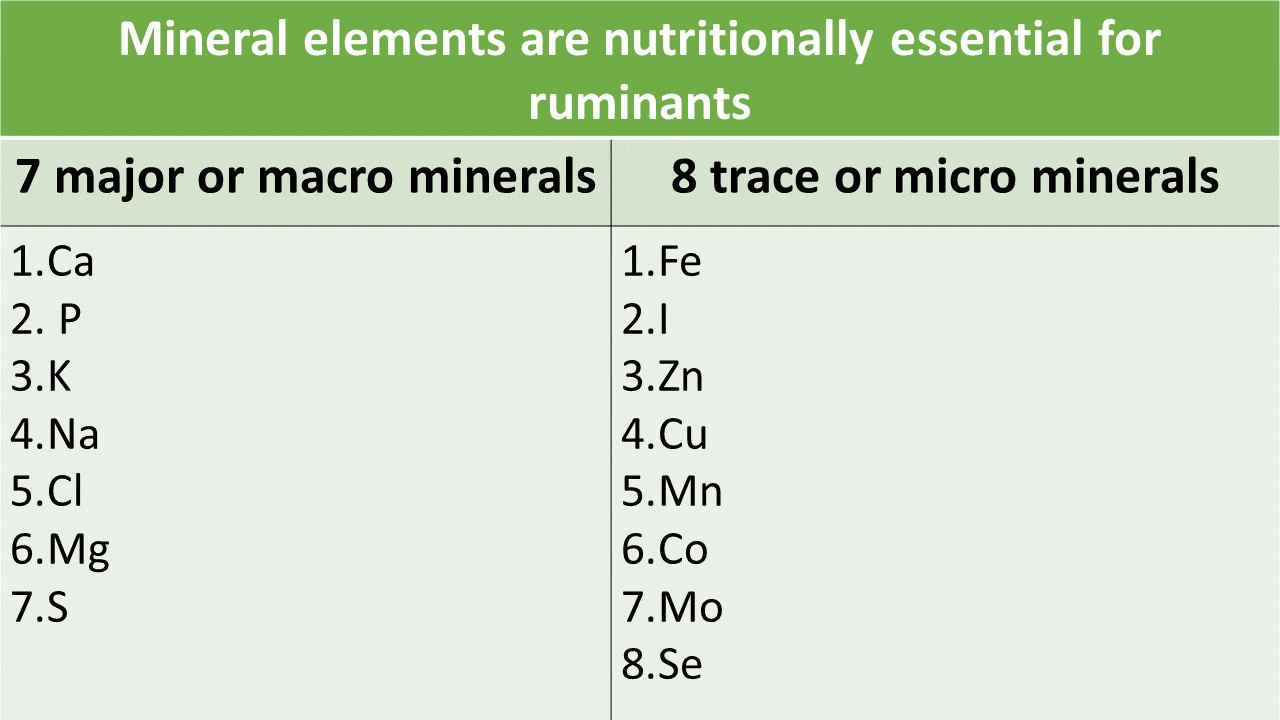Mineral imbalances and deficiencies can cause sub-optimal production and reproduction even when there is an abundant feed supply. At least 15 mineral elements are nutritionally essential for ruminants. There are seven major or macro minerals (Ca, P, K, Na, Cl, Mg and S) and eight trace or micro minerals (Fe, I, Zn, Cu, Mn, Co, Mo and Se). An excess of Cu, F, Mn, Mo or Se can also cause toxicities. Toxicities can also occur where excess arsenic, lead, cadmium, mercury or aluminium, occurs. The macro elements like calcium, phosphorus and magnesium form the structural part of the skeleton of an animal. Phosphorus also has a central role in the energy metabolism of the animal. Copper is essential for the functioning of a wide variety of enzymes and a shortage thereof results in symptoms that vary from anaemia to a lowering of fertility to a loss of crimp in wool. Cobalt forms part of Vitamin B12 which is essential for the utilization of propionic acid.

The following is a list of the essential minerals and their approximate concentrations in the body:
|
Macro Elements |
Micro Trace Elements |
||
|
Calcium Phosphorus Potassium Sodium Chlorine Sulphur Magnesium |
1,55% 1,00% 0,20% 0,16% 0,11% 0,15% 0,04% |
Iron Zinc Copper Manganese Iodine Cobalt Molybdenum Selenium |
20 - 80 ppm 10 - 50 ppm 1 - 5 ppm 0.2 - 0.5 ppm 0.3 - 0.6 ppm 0.02 - 0.1 ppm 1 - 4 ppm |